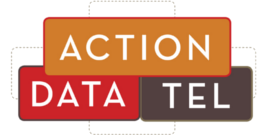Stop These 5 Habits to Avoid A Ransomware Attack

Remember the days when you didn’t have to try to avoid ransomware? You could install antivirus software on your computer and not worry anything further about whether you computer was protected or not? Once installed, you could go around downloading things and opening files to your heart’s content.
That’s not the case today.
Today, antivirus alone cannot and will not protect you. If you download a file that’s infected with a code specifically designed to circumvent your security protocols, you are essentially inviting that hack in with a door WIDE open. Regardless of whether you’re using a work computer, laptop, personal computer, phone or tablet, you that can lead to a ransomware attack. While you can’t stop ransomware on your own, you can practice safe habits to help avoid ransomware attacks.
Here are 5 things you AND your employees should stop doing IMMEDIATELY to better help avoid ransomware attacks:
1. STOP downloading apps from unknown sources.
There is no shortage of apps available online FOR FREE that are tempting to download. Hackers KNOW that people are naturally curious and have mastered the art of using that curiosity for nefarious reasons: designing “clickbait” to nail you in a moment of weakness. To prevent rogue apps and programs from installing, configure your devices to disallow the installation of programs from unauthorized sources. On your phone, ONLY download apps from your device’s respective app store that are tested and forced to meet the store’s security and privacy requirements.
Business owners: while I’m sure all of your employees are trustworthy souls, it IS possible (and recommended) to have business machines locked down. This will prevent your employees from downloading any applications (or files) that could harm you and compromise your security.
2. STOP surfing the web unprotected, especially when accessing downloads.
This is important especially if you are on public WiFi. Starbucks is not going to guarantee your Internet connection is safe, nor is any other business, restaurant or location offering free Internet access. Talk to your IT company (that’s US!) about endpoint protection solutions, like a VPN (Virtual Private Network), that will “hide” you from cyber-criminals and filter out nefarious websites and attacks so you CAN use public WiFi without the fear of inviting a hack.
 3. STOP opening and downloading files e-mailed to you without extreme caution.
3. STOP opening and downloading files e-mailed to you without extreme caution.
The NUMBER 1 way hackers gain access to a network is still via emailed Phishing attacks. The attacker hack’s the email and gains access to their lists of friends, colleagues and coworkers, and their boss. They send e-mails that appear legitimate, often by using their actual e-mail in highly sophisticated and targeted attacks. BEFORE you open or download ANY file e-mailed to you, make sure it was one you were expecting. It’s far safer to use secure encrypted e-mail. Your IT Service Provider (that’s us) can set up specific security protocols (more than just regular encrypted email) to ensure the safe transfer of files and attachments. But bottom line, if ANY file “feels” wrong or suspicious about a file download, including a weird extension or suspicious file name, CALL the person who sent it to verify. If it’s important, they can send it again.
4. STOP downloading “bloatware.”
It’s common for legitimate, reputable apps to sneak in other applications or toolbars you don’t need. They sell this as a sponsorship to make more money every time one of their users downloads an app. The best way to spot these is to look for check boxes when installing that automatically opt you into services by default. So, before you hit “Next” and keep rolling to get your app installed, take a second to read and review what you’re agreeing to when installing that new app.
5. STOP downloading music, software, games, movies and the like from websites like BitTorrent, UTorrent, RARBG, 1337x and similar peer-to-peer file-sharing sites.
It’s very common for file-sharing networks to be breeding grounds for hackers who post files infected with malicious software for people to download. Some of the ads on these sites are malicious as well. Don’t feel “safe” just because you have antivirus – because you’re not.
Business owners: after showing this to your team for both their work and personal devices, click here to schedule a quick 10-minute call to find out how we can implement security systems that will give you stronger protections against hackers and against employees who accidentally click on or download a malicious file.
